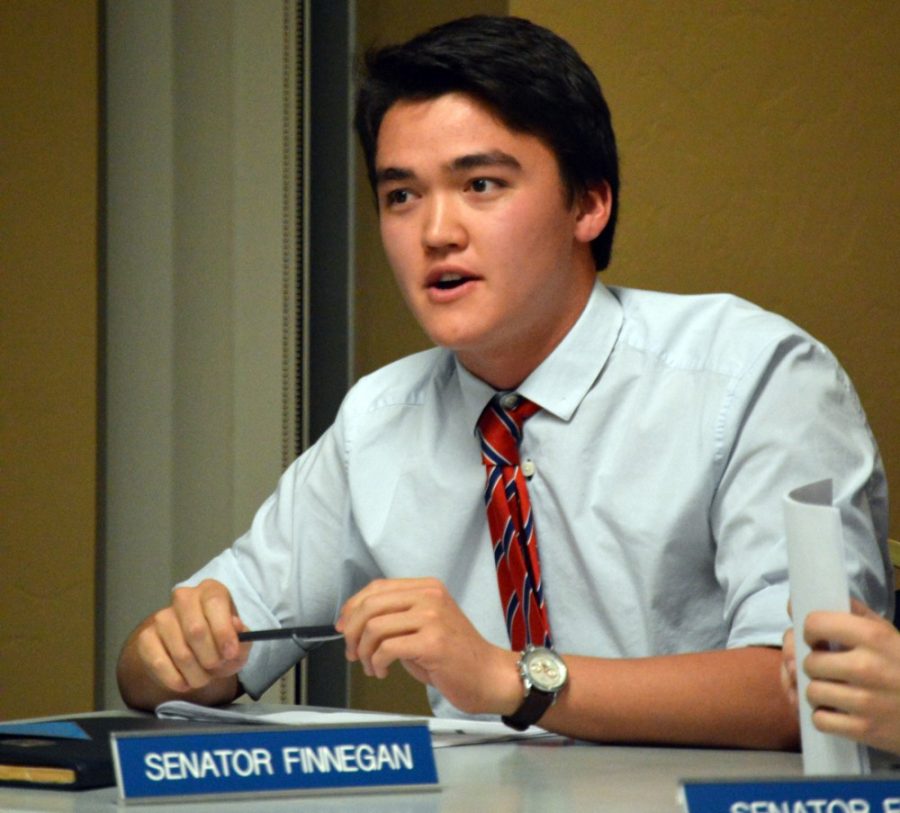ASUA further discussed the details of election code at the senate meeting on Wednesday evening.
A major point of discussion among the Associated Students of the University of Arizona Senate was preventing an occurrence during elections known as “dorm storming.”
During prior elections, personal computers were utilized within dorm storming and caused the senate to discuss IP addresses.
Dorm storming was described by the senate as when affiliates of those running for a position go to dorms and have everyone in the dorm vote for that specific candidate.
ASUA Sen. Michael Finnegan said an issue with the previous suggestion of preventing IP addresses from being used multiple times would be students who have to use a desktop on campus to vote or the fact that supposedly the Wi-Fi changes the IP address.
Diego Alvarez, elections commissioner, said the issue of restricting IP addresses would not be something that would be in the code due to the fact that the elections commission wouldn’t be in direct control of it.
Brian Seastone, chief of the University of Arizona Police Department, said that the issue does not really matter as voters have to go through some form of security regardless. ASUA
Sen. Joe Zanoni said that he does not think it matters.
“People will have to actually follow the rules if we implement this,” Zanoni said.
ASUA Sen. William Box said that it doesn’t have to rely on the IP address, but that restricting the IP address is the major way to prevent people from walking around asking people to vote for a candidate.
ASUA Sen. Brooke Serack said that a way to avoid the issue is have registered IP addresses that would not be blocked at certain locations such as polling places. However, she said that if the real issue is dorm storming then the focus shouldn’t be on restricting IP addresses.
“If dorm storming is our main priority that we are trying to stop, then maybe it’s having harsher penalties or restrictions on people who do dorm storming,” Serack said. “Maybe it’s if you’re caught dorm storming, then maybe that candidate you are vouching for will face consequences, too.”
The final suggestion made to prevent dorm storming was that the elections commission should talk to resident assistants to see that dorm storming does not take place.
Another issue brought up by the senate was having the ballots in alphabetical order, with the belief that those with last names that are closer to the end of the alphabet are at a disadvantage.
Zanoni expressed concern that when voters are told to select up to 10 individuals on the ballot, voters will simply select the first 10 listed rather than actually going through the list of names. Zanoni made the recommendation that the list be randomized instead.
“I agree if we explicitly state these [candidates] are in random order,” ASUA Sen. Jack Emery said. “It could be construed as something else if someone sees them in non-alphabetical order.”
Box agreed that if the ballot is placed in randomized order it needs be stated.
“When you see it in alphabetical order you go, ‘There is a reason it is in this order,’ where as if it is randomized, you are confused and wondering why,” Box said.
ASUA Sen. Elena Gold said to the senate that the ballot the year prior was not in alphabetical order. It was then discussed that the ballot was in order based on how many votes an individual received at the primaries.
ASUA Sen. Ellen Dunn confirmed with Alvarez that the names would be randomized using Excel and proceeded to propose an amendment that would state in the elections code and on the ballot that Excel placed these names in random order.
_______________
Follow Ariella Noth on Twitter.









